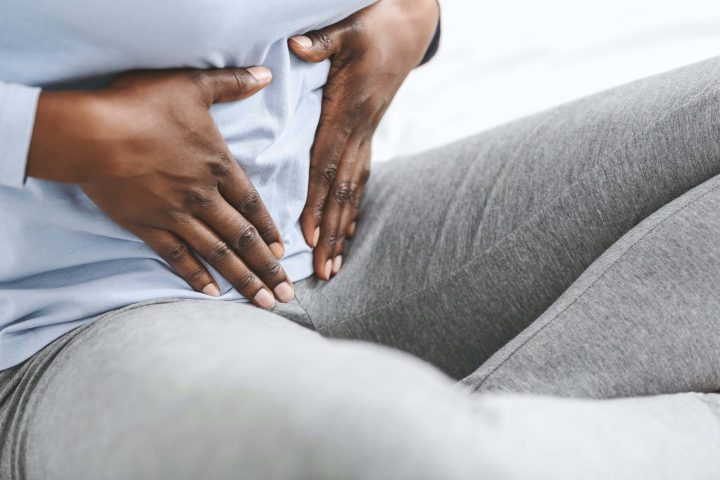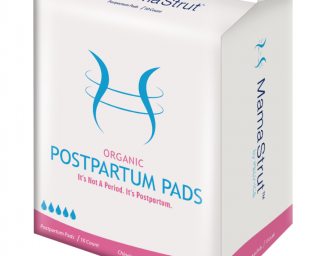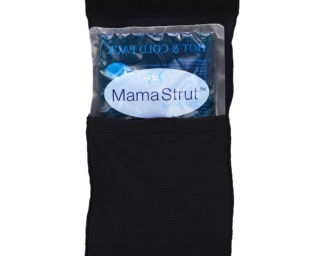By January, women could have access to more postpartum support than ever … literally. A new bill has hit the floors of the California state government calling for all health care plans to include coverage for post-pregnancy pelvic floor physical therapy as early as January 2021.
Assembly Bill (AB) 1904 was introduced by Assemblywoman Tasha Boerner Horvath, spurred by a 2018 study published by the Israel Medical Association, one of many organizations around the globe recommending pelvic floor PT as standard care post-childbirth (in France, 10-20 sessions of pelvic rehab are already covered by the health plan).
The study agreed with what many women and medical professionals in the OB-GYN and PT areas have said for ages–that pregnancy and childbirth can damage the pelvic floor, causing incontinence, chronic pain, and perhaps most extreme, organ prolapse. It may take weeks, months or even years for some of these conditions to present themselves, but if addressed proactively in the early postpartum period, they could be prevented.
Although California law does require coverage for maternity benefits (like all other states since the passage of the Affordable Care Act in 2014), postpartum care isn’t always part of the package.
But isn’t it just normal for women’s bodies to be different after having babies?
Yes and no. Pregnancy and childbirth are traumatic, and some things won’t ever be the quite the same afterward, but some of the conditions that are written off as being part of the deal, or as annoyances women just have to live with, could actually be avoided altogether with quality postpartum care that includes pelvic floor PT.
Consider the conditions and symptoms that can and often do arise after a pregnancy and childbirth:
Urinary and/or fecal incontinence. Women are often told that it’s normal to “leak” after having a baby, whether while exercising, sneezing, or just laughing. It should not be considered normal. It’s an embarrassing, uncomfortable, laundry-creating condition that can eventually necessitate a surgical procedure. Even urinary frequency/urgency bladder pain can be connected to the pelvic floor. And it’s all possible to address on the front end with pelvic floor PT.
Organ Prolapse. Restorative Pelvic Physical Therapy, Inc. describes the pelvic floor as “a little hammock,” holding up our bladder, uterus, the bowel, the vagina and the rectum.If you’ve seen a hammock when too many people have swung on it, you know what happens. It stretches down and the ropes and fibers loosen over time. Eventually, it permanently loosens. The same thing happens with the pelvic floor, and as the floor lowers, so can the organs it’s holding up. We need our organs to stay inside our bodies, right?
Restorative strengthening therapy early on can prevent prolapse and the surgical procedures that may accompany them in the long run.
Pelvic Pain or Looseness
Women may experience painful sex or general pelvic pain resulting from pregnancy, childbirth, a C-section or perineal scar. Looseness in the vagina or abdomen–PT can take care of that, too.
As with most medical treatment approaches, physical therapy exercises aren’t meant to be the WHOLE package. Self-care, like investing in a maternity or postpartum support brace and icing when needed, will aid in recovery, too.
What therapists say:
- “Women who have cesarean deliveries should have a postpartum checkup with a women’s health PT, because no obstetricians I’ve worked with have talked with patients about scar mobilization, which can lead to adhesions, bladder pain, and pelvis pain as much as 2 years later” (Wojciechowski).
- Pelvic floor muscle training, similar to that performed in physical therapy, has also proven effective in preventing urinary incontinence, prior to and after delivery, in pregnant women.
- Exercise is important after delivery. One therapist often will focus on strength and stability, giving patients the most effective exercises they can do within a limited period of time, saying “strengthening—it has some of the best evidence for effecting change” (Wojciechowski).
And of Kegel exercises, frequently the sole exercise recommended by OB-GYN doctors,
- Too often, Kegel exercises are touted as the miracle cure for many pelvic floor issues. Kegels can help to strengthen these muscles, but they aren’t always the answer and that’s certainly not the only option (Restorativepelvict)
So, if pelvic floor PT is so clutch, why are places like the Mayo Clinic still seeing 2900 women per year for pelvic organ prolapse?
The explanation mostly relates to affordability and insurance.
Access to PT is limited, not due to a lack of providers, but due to other barriers. It requires time–PT is not a “one and done” appointment, and it requires specialized providers. Further, coverage for treatment varies by insurance company. Some insurers only consider physical therapy medically necessary with a provider referral (and often on the condition that a patient is showing improvement), and they may place a cap on the number of visits they will cover per year. Still others place annual caps on the dollar amount spent on physical therapy per year (Progovac).
Our thoughts, and hopefully the thoughts of the legislators who vote on it: coverage for postpartum pelvic floor physical therapy will prove to be less costly than coverage for thousands of surgeries down the road, or at least not MORE than intensive physical therapy later on. It’s a win for everyone.
References
- Progovac, Ana. Pelvic Floor Disorders (Part 2): Barriers to Effective Treatment. AJMC Managed Markets Network. 21 October, 2015. ( https://www.ajmc.com/contributor/ana-progovac-/2015/10/pelvic-floor-disorders-part-2-barriers-to-effective-treatment)
- Restorativepelvict. Pelvic Floor Physical Therapy: What You Need To Know. Restorative Pelvic Physical Therapy, Inc. 10 October, 2019. https://www.restorativepelvicphysicaltherapy.com/pelvic-floor-physical-therapy-what-you-need-to-know/
- Wojciechowski, Michele. What to Expect When They’re Expecting: PTs Who Treat Patients During & After Pregnancy. PT in Motion. December 2017. https://www.apta.org/PTinMotion/2017/12/Feature/WhatToExpect/







